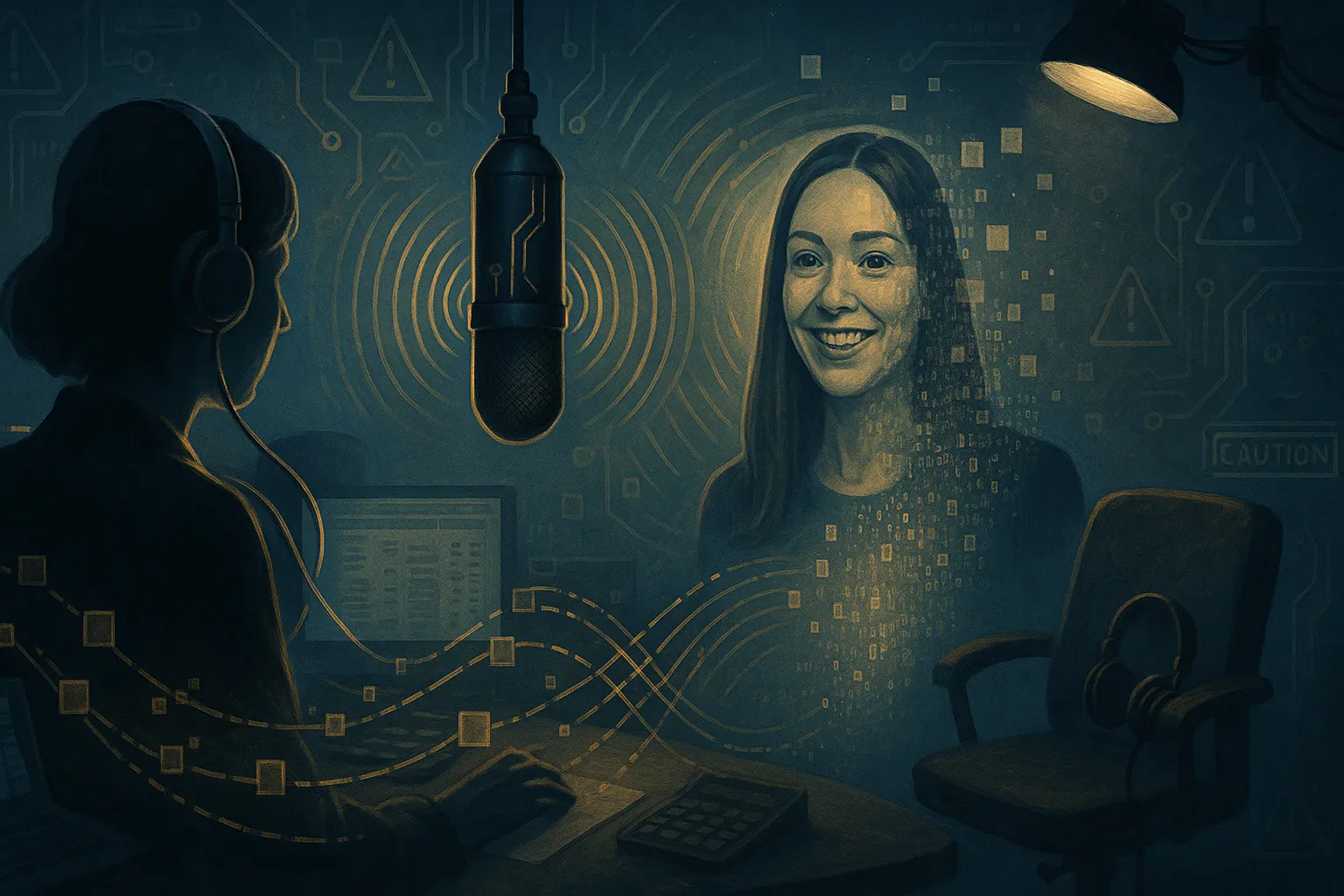CADA radio's workday host "Thy" broadcasts four hours of music daily to 72,000 listeners. But she never shows up at industry events, lacks social media accounts, and mysteriously avoids the office. There's a simple reason: She's an AI construct.
The artificial host's voice comes from ElevenLabs, a text-to-speech platform that creates voice clones from just minutes of recorded speech. ARN, CADA's parent company, partnered with ElevenLabs in 2023. They borrowed both voice and image from a real employee in their finance department who doesn't work on air.
How the Deception Unraveled
Radio industry veteran Stephanie Coombes first spotted the deception. Her investigation found identical voice patterns across broadcasts and mechanical-sounding announcements. Most telling was Thy's complete absence from industry circles - no welcome emails, no staff introductions, no internal communications.
The timing makes this experiment one of the longest-running undisclosed uses of AI hosting. Thy appeared on CADA's website in November and has been broadcasting to about 160,000 digital radio listeners since then.

Diversity Theater at Its Worst
The incident exposes deeper issues at ARN. Across their nine national stations, Thy appears to be the only presenter of color. Rather than hiring actual diverse talent, the company generated a fictional Asian presenter - and gave her a name that rhymes with "AI."
Cost-cutting doesn't explain this choice. A part-time junior host for Thy's schedule would cost around $35,000 annually - pocket change for a major broadcaster. This suggests the decision wasn't about money but about checking diversity boxes without making real changes.
CADA recently fired their breakfast host Sophie Nathan, leaving just one human presenter, drive-time host K-Sera. The station now has an equal number of real and artificial hosts.
The practice of AI hosting has precedent, but usually with disclosure. A Polish state-funded station in Krakow tried replacing all its journalists with AI last year. They reversed course after public backlash. An Oregon radio station experimented with an AI host based on a real presenter in 2023.
AI Spreads Across Media
The trend extends beyond radio. Nine Entertainment, which owns major Australian media outlets, now offers AI-generated TV ad voiceovers to small businesses. But these uses are disclosed - unlike CADA's secret AI host.
High-profile presenters like KIIS FM's Kyle Sandilands and Jackie Henderson, who recently signed a $200 million contract, likely won't face AI replacement. But shows with smaller audiences could increasingly automate their hosting.
Industry experts warn this sets a dangerous precedent. Radio broadcasting licenses come with public trust obligations. Using undisclosed AI hosts violates this trust and raises questions about media authenticity.
The revelation has sparked calls for stricter AI disclosure rules in media. Critics argue audiences deserve to know when they're listening to computer-generated content, especially from licensed broadcasters who serve as pillars of public information.
Future of Media Jobs
ARN's experiment also raises questions about the future of media jobs. If companies can replace junior hosts with AI clones, entry-level positions - traditionally the starting point for media careers - might disappear.
Why this matters:
- When broadcasters secretly replace humans with AI, they're not just cutting costs - they're eroding public trust in media authenticity
- If companies can fake diversity with AI instead of hiring real people, genuine representation in media may become even harder to achieve
Read on, my dear:
- CADA: Workdays with Thy










